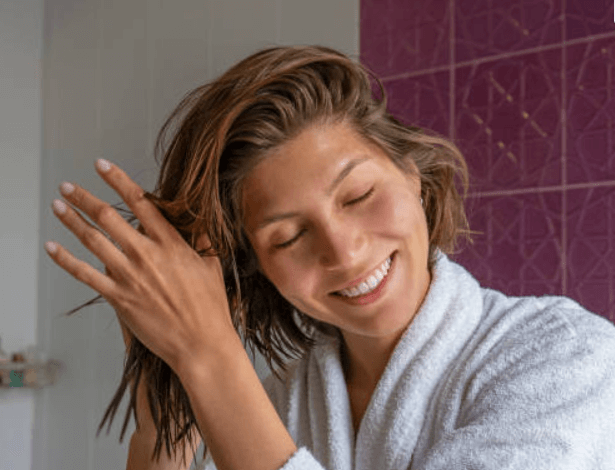How Does Shampoo and Conditioner Affect Hair Growth?

Shampoo and conditioner are essential components of many people’s daily hair care routines, but their effects on hair growth are often misunderstood. To assess how shampoo and conditioner affect hair growth, it’s important to consider their ingredients, how they interact with the scalp, and how they contribute to overall hair health.
Shampoo and its Role in Hair Growth
Shampoo is primarily designed to cleanse the hair and scalp of dirt, oil, and product buildup. This cleansing action is crucial because a clean scalp creates a healthier environment for hair growth. However, the relationship between shampoo and hair growth isn’t as direct as one might assume.
Most shampoos contain surfactants, which are cleaning agents that help remove impurities. Common surfactants include sodium lauryl sulfate (SLS) and sodium laureth sulfate (SLES). While these ingredients are effective at cleaning, they can also strip the scalp of natural oils, potentially leading to dryness and irritation. Dry and irritated scalps can hinder hair growth, making it important to choose a shampoo that balances effective cleansing with scalp health.
In recent years, there has been a rise in shampoos formulated with gentle, sulfate-free surfactants. These shampoos aim to minimize irritation and maintain the scalp’s natural moisture balance. Ingredients like tea tree oil, biotin, and caffeine are also commonly included in shampoos marketed for promoting hair growth. Tea tree oil is known for its antimicrobial properties, which can help keep the scalp healthy, while biotin and caffeine are believed to stimulate hair follicles and enhance blood circulation.
See also: The Benefits of Real Estate Crowdfunding
Conditioner and Its Influence on Hair Growth
Conditioner, on the other hand, is used to moisturize and detangle the hair, making it smoother and more manageable. While conditioner doesn’t directly affect hair growth, its role in maintaining hair health cannot be underestimated. A well-conditioned scalp is less likely to experience breakage and split ends, which can indirectly support hair growth by preventing damage.
Conditioners often contain emollients, silicones, and proteins that coat the hair shaft and improve its strength and elasticity. Ingredients like keratin and amino acids in conditioners help repair and strengthen hair, reducing breakage. Healthy, strong hair is less likely to fall out or break, which supports the overall growth process.
Some conditioners are formulated with active ingredients aimed at stimulating hair growth. For instance, conditioners containing caffeine or biotin can be beneficial for encouraging healthy hair follicles. Additionally, conditioners with essential oils like rosemary or peppermint can enhance blood flow to the scalp, potentially creating a more favorable environment for hair growth.
Balancing Shampoo and Conditioner for Optimal Hair Growth
The key to maximizing the benefits of shampoo and conditioner lies in using them correctly and choosing products suited to your hair type and needs. Over-washing the hair can strip it of essential oils, leading to dryness and potential scalp issues. Conversely, under-washing can result in buildup that may clog hair follicles and impair growth. Finding a balance is crucial.
When selecting shampoo and conditioner, consider your hair type and scalp condition. For instance, those with oily scalps may benefit from a clarifying shampoo to remove excess sebum, while individuals with dry or sensitive scalps might prefer a hydrating or soothing shampoo. Similarly, conditioners should be chosen based on hair type—light conditioners for fine hair and more intensive treatments for thick or curly hair.
Additional Considerations for Hair Growth
While shampoo and conditioner are important, they are just one aspect of a comprehensive hair care regimen. Diet, overall health, and genetics also play significant roles in hair growth. Nutrients such as vitamins A, C, D, E, zinc, and iron contribute to hair health, as does a balanced diet rich in proteins and healthy fats.
Moreover, lifestyle factors like stress management and adequate sleep are essential for maintaining a healthy scalp and promoting hair growth. Regular scalp massages can also stimulate blood flow to the hair follicles, further enhancing the effectiveness of shampoo and conditioner.
Summary
While shampoo and conditioner are not miracle products for hair growth, they play crucial roles in maintaining a healthy scalp and preventing damage. Choosing the right products for your hair type and using them properly can support an environment conducive to hair growth. However, for optimal results, it is important to consider other aspects of hair care, including diet, lifestyle, and overall health.




